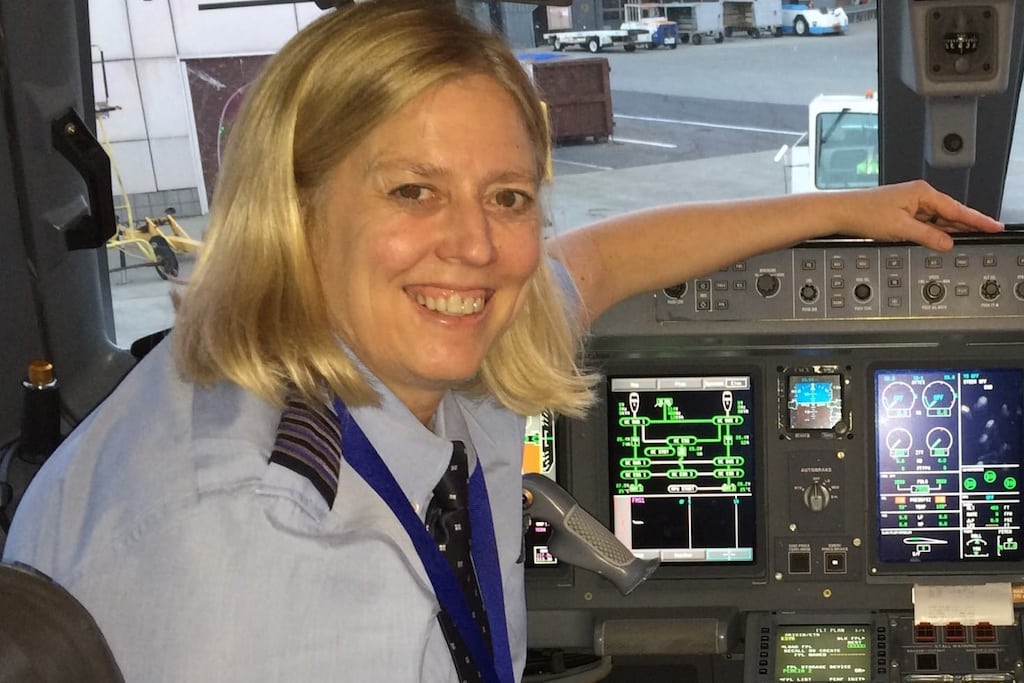Skift Tech Forum Preview: Why JetBlue Airways Entered the Venture Capital Business

Skift Take
You will probably not find an airline executive with a more complete resume than Bonny Simi.
She's a Stanford University graduate with three master's degrees, two from Stanford. She's also a a former three-time winter Olympian in luge, and an ex-television sports anchor in a big local market. More recently, she has been an airline pilot, and she still flies the 100-seat Embraer E190 for JetBlue Airways a couple of times a month.
But these days she's not a typical pilot. Since joining JetBlue in 2003 after flying for United Airlines, Simi has moved up the executive ranks, leading teams in human resources, customer experience and airports.
In early 2016, she became the first president of JetBlue Tech Ventures in Silicon Valley, the airline's venture capital subsidiary. She's seeking to find travel-related investments that can both help JetBlue's main business become more productive, while generate profits. Her group has made investments in 18 companies so far, with more to come.
Simi will speak on June 12 at the Skift Tech Forum in Silicon Valley. We spoke with her recently to preview the discussion. The interview has been edited for length and clarity.
Skift: What's the purpose of JetBlue Tech Ventures?
Bonny Simi: We're the corporate venture arm for JetBlue. A lot of people think of JetBlue as an airline, and, yes, we are an airline, but we like to think of ourselves as a travel company in a very broad sense. This is a way for us to begin thinking about other brand extensions, other technologies.
It allows us to get a seat at the table at everything from electric vertical take-off and landing aircraft, to omni-channel communication platforms, to how might blockchain revolutionize travel. JetBlue has always been a very innovative company, and this takes it to the next level.
Skift: Do your investment targets have to be air-travel related?
Simi: Our focus is travel technology, so not airline technology. We've invested in ground transportation startups and hospitality. It needs to be related to travel, but it does not need to be related to JetBlue the airline.
Skift: Is the goal to generate big profits?
Simi: We invest for strategic reasons. We obviously invest money, but we also invest time and effort. It's about JetBlue becoming more nimble, or new potential opportunities from a business perspective. We're not going in to throw money to get a 10X. Although, that said, we do like it when our portfolio companies do well. Startups come and go, and really only about a third of them typically succeed, and all 18 of ours are still in operation. Several are doing exceptionally well.
We'll probably get to 30 by this time next year. Our portfolio will kind of stabilize somewhere between 30 and 40 companies, and then people we'll be able to look at that whole [group] and realize the scope of what we're doing.
Skift: Have any of the investments so far helped JetBlue?
Simi: We've got a technology that's sort of revolutionizing revenue management, that we've introduced to several airlines, and of course in JetBlue as well. It's called FLYR Labs. That one is looking to be quite successful. We've got some on the operational side that we're starting to work with in terms of improving operations, like Lumo, which was announced recently. [Editor's note: It predicts flight delays.]
Then we have some longer term bets, things like electric vertical take-off and landing vehicles, electric propulsion — like Tesla for air. Those are long ways out, probably 2023 to 2025, but we have a seat at the table there as well.
Skift: Does your background as a pilot help you see opportunities differently?
Yes. Because of my expertise, I can very quickly look at a startup for the operational side of the house and can say, 'Yes, it's good,' or 'No, it's not.' For example, there was one that came in [recently] that can help the pilots better plan the fuel before a flight. They asked, 'Would that be of interest?' I said, 'Well actually, that's meant for general aviation, because for us we have some pretty sophisticated systems, and it's the dispatchers that do that.'
Likewise [with] Lumo, I looked at that and I know they have massive analytical capability around tracking and predicting air traffic control, delays, and weather, and other things far better than the FAA can do. But because I understand that type of data, I can look at that and say, 'Absolutely, that's one we want to do,' even if others weren't quite so sure, and even if the people running it — the smart MIT PhDs — didn't quite have the business model yet.
It's because they aren't pilots. I can look at it and say, 'Yeah, absolutely, this, this and this.' The piloting side plays very well. I've been flying for 33 years, so I'm pretty well-versed in this."




